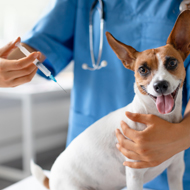Charity captures foal’s birth on live webcam
The charity is planning to enlist the public to help name the foal.
The birth of a Welsh moorland foal has been captured on camera at an animal sanctuary in Devon.
Mare Nia delivered the colt foal in a quiet pasture on Thursday, 29 August at the Mare and Foal Sanctuary’s site in Newton Abbot.
Although mares generally foal during the night or the early hours of the morning, Nia walked to the centre of her field just before 7pm before lying down and giving birth. Her field companion, a grey Dartmoor mare, watched from a distance before trotting over and appearing to nuzzle the foal.
The event was captured on live webcam. Pregnant foals at the sanctuary are closely monitored with cameras day and night. Staff are always on hand to help if necessary and there is a veterinary practice based at the sanctuary.
In this case, although the mother foaled sooner than expected, there was deemed to be no need for human intervention.
Kayleigh Bull, Nia’s assigned handler, said: “Nia just didn’t show the usual signs we would expect before foaling so none of us thought it would happen as quickly. We always believed it was going to be a September birth.
“I found out the news when the night team arrived, and they popped a little picture in our communication group.
“It is very exciting, but anyone who works with newborn foals will always be concerned they’re latching well and are as healthy as can be. Nia seems to be doing well and I hope the little foal will become strong and healthy.”
Nia is part of a herd of 69 semi-feral Welsh moorlands at the sanctuary which were rescued from Merthyr Common in a joint operation involving several animal welfare organisations. There are currently almost 600 horses and ponies in the Mare and Foal Sanctuary’s care.
Dawn Vincent, the charity’s director of fundraising and communications, added: “The little foal is chestnut with a white flash down his face, just like his older sister Netty who our supporters helped us to name just before Christmas.
“We’ve all fallen in love with him already. He, his sister Netty and their dam Nia have sanctuary for life with us and in coming years we will carefully assess their needs to see where they might live a happy and fulfilled life.”
Image © The Mare and Foal Sanctuary



 RUMA CA&E has extended the deadline for its online survey into vaccine availability.
RUMA CA&E has extended the deadline for its online survey into vaccine availability.